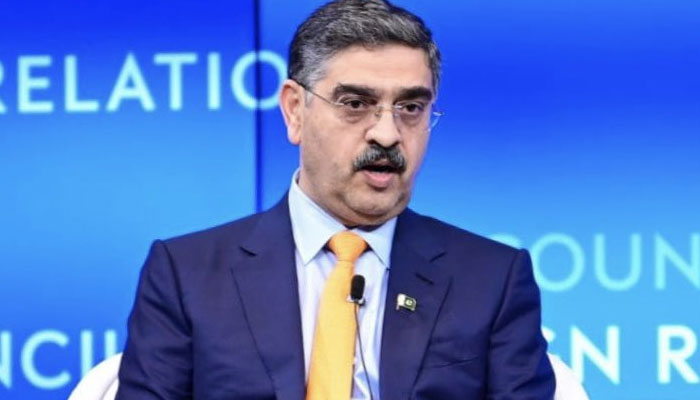Act decisively
The caretaker government, with the backing of the establishment, has made a determined effort to tackle a range of pressing issues. This proactive approach encompasses clamping down on illicit currency markets, targeting individuals engaged in hoarding dollars, and addressing the problem of currency smuggling. Furthermore, administrative measures have been implemented to confront illegal migration and oversee the regulation of betting companies. These combined efforts have produced encouraging and favorable outcomes.
To be certain, purely administrative measures alone cannot significantly change macroeconomic realities. Macro-level economic conditions are influenced by a complex interplay of various factors, and administrative measures, which are essentially actions taken by the government or relevant authorities to regulate and control certain aspects of the economy, are just one piece of the puzzle.
To be sure, administrative measures alone are insufficient to change our macroeconomic realities. Three of these macroeconomic realities are: budget deficits, trade imbalances and inflation. All three are deeply rooted in structural issues within the economy. Administrative measures can help manage these issues in the short term, but they are incapable of addressing the underlying structural problems.
This year, the government’s budget deficit is expected to hit Rs8 trillion. That means escalating public debt, rising inflation, the crowding out of private investments, mounting pressure on the rupee’s exchange rate, and potential downgrades in our credit rating. Administrative measures, in isolation, offer limited solutions to this complex issue. What is truly imperative is the implementation of stringent fiscal discipline, effective cost management, and the adoption of prudent borrowing practices.
During the July-September period, the trade deficit stood at $5.289 billion, marking a significant improvement compared to the $9 billion deficit recorded during the same period last year – an impressive 42 per cent reduction. This trade imbalance is inherently tied to our economic structure and specialization. Administrative measures, in isolation, will prove inadequate in tackling this fundamental issue. What we require are comprehensive regulatory reforms, a strategic drive towards export diversification, emphasis on value addition, and streamlined trade facilitation processes.
In May, Pakistan’s annual inflation rate rose to 37.97 per cent, an historical record for the second month in a row. In Pakistan, inflation is a direct outcome of the extensive printing of currency notes. Over the past five years, the currency in circulation has surged from Rs4 trillion to Rs9 trillion. This surge in currency supply has eroded the value of the rupee, resulting in a scenario where more money is needed to purchase the same amount of goods, ultimately fueling inflation. In this context, administrative measures are limited in their effectiveness.
In conclusion, while the caretaker government’s efforts backed by the establishment are commendable, it’s evident that purely administrative measures can only go so far in addressing our economic challenges. Budget deficits, trade imbalances, and record-high inflation are deeply rooted in structural issues that demand more than administrative solutions. To secure a stable and prosperous future, we must prioritize structural reforms, stringent fiscal discipline, and minimisation of politics in economic decision making. Our nation’s economic well-being hinges on these vital changes, and it’s imperative that we act decisively.
The writer is a columnist based in Islamabad. He tweets/posts @saleemfarrukh and can be reached at: farrukh15@hotmail.com
-
 King Charles, Princess Anne, Prince Edward Still Shield Andrew From Police
King Charles, Princess Anne, Prince Edward Still Shield Andrew From Police -
 US Set To Block Chinese Software From Smart And Connected Cars
US Set To Block Chinese Software From Smart And Connected Cars -
 Carmen Electra Says THIS Taught Her Romance
Carmen Electra Says THIS Taught Her Romance -
 Leonardo DiCaprio's Co-star Reflects On His Viral Moment At Golden Globes
Leonardo DiCaprio's Co-star Reflects On His Viral Moment At Golden Globes -
 SpaceX Pivots From Mars Plans To Prioritize 2027 Moon Landing
SpaceX Pivots From Mars Plans To Prioritize 2027 Moon Landing -
 King Charles Still Cares About Meghan Markle
King Charles Still Cares About Meghan Markle -
 J. Cole Brings Back Old-school CD Sales For 'The Fall-Off' Release
J. Cole Brings Back Old-school CD Sales For 'The Fall-Off' Release -
 GTA 6 Built By Hand, Street By Street, Rockstar Confirms Ahead Of Launch
GTA 6 Built By Hand, Street By Street, Rockstar Confirms Ahead Of Launch -
 Funeral Home Owner Sentenced To 40 Years For Selling Corpses, Faking Ashes
Funeral Home Owner Sentenced To 40 Years For Selling Corpses, Faking Ashes -
 Why Is Thor Portrayed Differently In Marvel Movies?
Why Is Thor Portrayed Differently In Marvel Movies? -
 Dutch Seismologist Hints At 'surprise’ Quake In Coming Days
Dutch Seismologist Hints At 'surprise’ Quake In Coming Days -
 Australia’s Liberal-National Coalition Reunites After Brief Split Over Hate Laws
Australia’s Liberal-National Coalition Reunites After Brief Split Over Hate Laws -
 DC Director Gives Hopeful Message As Questions Raised Over 'Blue Beetle's Future
DC Director Gives Hopeful Message As Questions Raised Over 'Blue Beetle's Future -
 King Charles New Plans For Andrew In Norfolk Exposed
King Charles New Plans For Andrew In Norfolk Exposed -
 What You Need To Know About Ischemic Stroke
What You Need To Know About Ischemic Stroke -
 Shocking Reason Behind Type 2 Diabetes Revealed By Scientists
Shocking Reason Behind Type 2 Diabetes Revealed By Scientists




